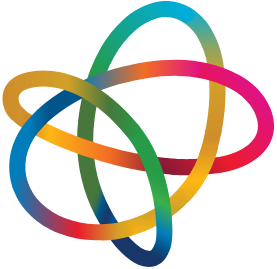UN proclaims 2025 as International Year of Quantum Science and Technology
The declaration recognizes the potential of quantum science to drive innovations in sustainable development and global communications.
On June 7th, 2024, the U.N. proclaimed 2025 as the International Year of Quantum Science and Technology (IYQ). This year-long, worldwide initiative will celebrate the contributions of quantum science to technological progress over the past century, raise global awareness of its importance to sustainable development in the 21st century, and ensure that all nations have access to quantum education and opportunities.
“Through this proclamation, we will bring quantum STEM education and research to young people in Africa and developing countries around the world with the hope of inspiring the next generation of scientists, “ said Riche-Mike Wellington, Chief Programme Specialist at the Ghana Commission for UNESCO and the Ghanaian representative for IYQ.
IYQ coincides with the 100th anniversary of the birth of modern quantum mechanics — the theory that describes the behavior of matter and energy at atomic and subatomic scales and has made possible many of the world’s most important technologies. Over the past century, quantum theory has become foundational to physics, chemistry, engineering, and biology and has revolutionized modern electronics and global telecommunications. Inventions like the transistor, lasers, rare-earth magnets, and LEDs — technologies that brought the internet, computers, solar cells, MRI, and global navigation into fruition — all exist because of quantum mechanics.
Looking forward, advances in quantum applications could enable new computing and communication models with the potential to accelerate innovations in materials science, medicine, and cybersecurity, among other fields. In this way, quantum science and technology is poised to help address the world’s most pressing challenges — including the need to rapidly
develop renewable energy, improve human health, and create global solutions in support of the U.N.’s Sustainable Development Goals.
“This second quantum revolution is leading to breakthroughs in using quantum effects like superposition and entanglement for new applications,” said John Doyle, Henry B. Silsbee Professor of Physics at Harvard University, co-director of the Harvard Quantum Initiative, and president-elect of the American Physical Society. “When these phenomena can be applied broadly to control and engineer matter at the level of single quanta, and even single atoms, they will spark transformations in a multitude of technologies.”
The U.N. proclamation is the culmination of a multiyear effort spearheaded by an international coalition of scientific organizations. After Mexico shepherded the coalition’s initial proposal through UNESCO’s 42nd General Conference in November 2023, Ghana formally submitted a draft resolution to the U.N. General Assembly in May 2024 that garnered co-sponsorship from more than 70 countries before its approval today.
UNESCO will oversee the campaign as the U.N.’s lead agency, while the American Physical Society will administer the campaign through an international consortium and invite scientific societies, academic institutions, philanthropic organizations, and industry to contribute to the initiative. The consortium’s current founding partners include the American Physical Society; the German Physical Society (DPG); the Chinese Optical Society; SPIE, the international society for optics and photonics; and Optica (formerly OSA).
“The American Physical Society welcomes the opportunity to collaborate with scientific organizations from around the world to spread awareness about quantum science and technology,” said Jonathan Bagger, chief executive officer of the American Physical Society. “With worldwide events and programming, we hope to build a vibrant and inclusive global quantum science community.”
Broad, multinational support for IYQ signals the need to strengthen the education, research, and development capacities of governments — especially those of low- and middle-income countries — to advance quantum science and technologies for the benefit of humanity. The U.N. proclamation stands as an open invitation for anyone to learn more — especially those at universities, in K-12 classrooms, and other venues for science communication. Throughout 2025, the IYQ consortium will organize regional, national, and international outreach events, activities, and programming to celebrate and develop learning resources for quantum science, build scientific partnerships that will expand educational and research opportunities in developing countries, and inspire the next generation of diverse quantum pioneers. More information about these activities will be announced in the coming months.
The International Year of Quantum of Quantum Science and Technology is a year-long, global initiative to recognize the importance of quantum science and technology and strengthen national capacities for science education and research.
